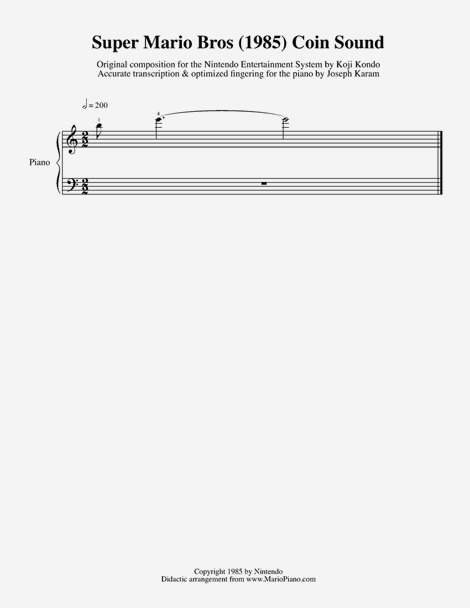My answer to the question posed above is “yes”… what’s yours?
Following on from my so called “open letter” about school chaplaincy funding from last week,* I’d like to address one of the comments that made its way back to me via a third party. I won’t name names, lest I betray any confidences…
“[I] wondered if he was too hasty in ruling out involvement of Christians in public discourse in an arena like education”
This isn’t what I’m trying to do at all. I’m actually trying to open a more helpful variety of engaging with the political realm, and those in opposition to Christianity, by hearing their criticisms and concerns, and weighing them up against these five starting assumptions. I’m not advocating that Christians acquiesce to any change in the law that will bring us one step closer to the lion’s den. I don’t have a martyr complex, figuratively or literally.
I don’t know if people have followed along on any of the now quite numerous debates I’ve had online regarding a Christian stance on gay marriage. There have been a few. Here, and elsewhere, and again…
Much smarter people than I have disagreed with my position on the relationship between church and state in each of those threads. But because I tend to see my own position in overwhelming clarity, while at least imagining that I have a good grasp of my interlocutor’s arguments, I still haven’t budged.
I think I’d describe my approach to politics as revolving around five poles, or starting assumptions. Perhaps you don’t share them. But at least you’ll understand where I’m coming from.
1. Jesus is the true ruler of the world (Philippians 2). Governments are appointed by God (Romans 13). As Christians our job is to proclaim the gospel to people (Matthew 28), and live such lives among the pagans that our proclamation has some appeal (1 Peter 2).
2. While the earth is the Lord’s, and while he has established guidelines for living lives pleasing to him, and while what the Bible says is sin is sinful… We can not seek to impose Christian morality onto people who don’t have the Holy Spirit, nor should we necessarily try to do that, it is ultimately a bandaid solution if point 1 is not taken into account.
3. Separation of church and state is a good thing, that should be upheld by both church and state – for the sake of clarity on both sides.
4. The nature of a democracy is such that all members of society have equal say about how society is governed, and ultimately it means that the will of the majority will become the law of the land. All parties in a democracy have the right to speak out in favour of their positions, but from a government’s perspective, elected representatives are elected to represent their constituency not to be the puppet of special interest groups (including Christian special interest groups). Special interest groups, or organised lobby groups, aren’t necessarily a bad thing, unless their clout outweighs their supporter base through graft, corruption, or manipulation.
5. Liberal democracies are also focused on providing individual liberties – which are valuable for Christians, especially as they pertain to freedom of religion, freedom of speech, and freedom of public assembly.
Given those points, if you want to speak out like Danny Naliah, Family First, Australian Christian Lobby, or even somebody more moderate – that’s great. You can’t necessarily claim to be speaking for God, or for Christians, though – you’re simply participating in the democratic process. And arguments starting with “The Bible says” or “God says” in a secular society aren’t going to get a long way when we’re increasingly not just secular, but non-religious. But you should feel free to do it. I’m not, in the words of No Doubt, saying “don’t speak” – it’s not my place to suggest that. I’d just love to see Christians thinking before they speak – about why we feel entitled to be able to impose our views on the majority.
I’d love more Christians to be entering into political discourse – even if they disagree with me, perhaps especially then. I don’t think that means starting our own party, or putting together an Australian Christian Lobby that acts just like any other self-interest group with a powerful supporters base. I’d love more Christians to join real parties (and even better, The Greens). That would be a great witness to our love for the world, and would help out with point 1 from above.
I’d especially love more Christians to be speaking out in favour of 3, recognising 2, and being wary of falling foul of point 4. Which is the approach I’m trying to advocate when it comes to both gay marriage and school chaplaincy, and indeed, politics in general.
I’m not saying “don’t say anything” – I don’t know where the notion that I was suggesting this in the chaplaincy post comes from. I’m not about acquiescence – I’d actually rather hear Christians speaking out against government handouts (which was the position I was trying to articulate) rather than just speaking out in favour of them. The truth, so far as I can figure it out, in the chaplaincy debate – is that we don’t really want the government’s money if it means compromising our position in the schools (where we enjoy the ability to teach children about Christianity). We also don’t want chaplains and religious education lumped together so they can be thrown out together. But even if both are, all is not lost. I haven’t really heard many people saying that in this debate – certainly not on Facebook.
Is it possible that our most positive witness is if we argue that God has given us all an amount of liberty (see point 5), but that we hope people use that liberty to live lives pleasing to him, through submitting to the lordship of Jesus? But if they don’t, we don’t want to force them. We don’t want to spoil the time they have on this earth. And we want the right to disagree with them, respectfully, in honouring our own beliefs and traditions.
Is there a danger of losing more than we’re bargaining for because of the way we’re so dogmatically trying to shoehorn everybody into Christian behaviour by organising lobby groups and political parties and not engaging with the world? Family First is never going to be a legitimate political force in Australia. They’re simply a mouthpiece for people who may not admit it but would like to legislate Christian values, or the Danny Naliah types.
The more we appear to be on the fringes, the more we appear to be relying on some sort of special pleading for our own personal point of view in an increasingly diverse nation, and the more we appear to be condemning other people’s exercising of liberties based on our “imaginary friend” and our “2000 year old book”, the less appealing Jesus is… why not let God, through the Holy Spirit, and the Bible, convict people of their sin, and then judge them accordingly – rather than trying to play judge, jury, and executioner ourselves (or at least legislature, judiciary, and executive…).
I’m going to spend the next few days reading through Andrew Cameron’s material (alongside K-Rudd and John Anderson’s material) from the 2005 New College Lectures on Church & State.
*Where, if you care to, you can read how I engage with a couple of atheist Facebook commenters from the platform I’ve outlined above…












